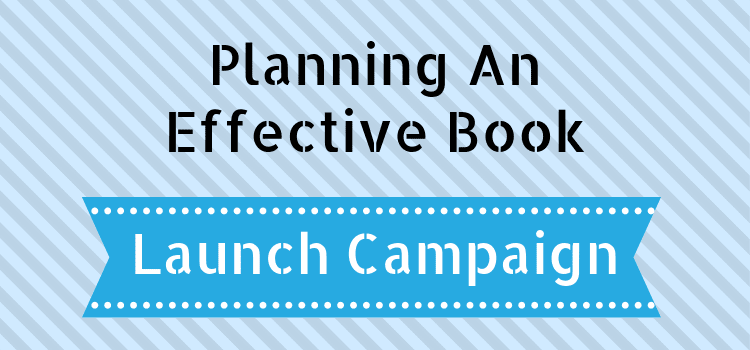
Planning Your Book Launch Campaign.
Let’s take a moment to think about something.
What’s the biggest difference between bestselling ebook authors and those who struggle to sell only a few copies?
Nigella Donovan, a marketing expert from Best Essays, has an answer for us.
A recipe for success?
“Talent? Of course, there’s some of that. Great eBooks have huge potential to sell.
Still, some of them remain unknown to the greater audience, while average pieces are making a huge breakthrough. Marketing is the X factor.
I’m not talking about writing an ebook, making it available for sale, and then promoting it all over the place. I’m talking about a smart pre-launch campaign that makes people excited about the edition before they can even get it.
It’s not about your writing talent that much. People write below-average ebooks that sell brilliantly; others write brilliant ebooks that don’t sell. It’s certainly not about luck. It’s about successful promotion, and that’s a fact.
If you have a great ebook, you make a successful pre-launch campaign and continue with the promotional activities after your book launch campaign; you have the recipe for success.”
Let’s focus on the pre-launch. How do you make it successful?
The Ultimate Guide to a Successful Book Launch Campaign
You’ve written a book and about to become a published author.
But where are your book sales going to come from? Do you have a marketing plan? Here are five book campaign ideas you can use to help you get ready for your book launch.
Later in this article, you can read the viewpoint of a traditionally published author. He explains how to manage ongoing sales after a book launch campaign.
1. Find Out Where the Money Is
You have a great idea for an ebook. How do you know it will sell for sure? You check before you start writing it.
One of the crucial steps in planning a book launch campaign is testing the market. You need to check what kind of content your target audience wants to buy.
Before launching a book, explore the relevant categories on Amazon and Goodreads.
If, for example, you’re writing an ebook related to yoga, check what kind of content is already available. You don’t want to launch the same book the audience has seen dozens of times before.
Check the most popular books in the category.
What makes them different? Is it the author’s Instagram activity? Do they use wit and humor? Is it all about the headline?
Scan the market to find out what’s missing.
You want to combine the factor of popularity with the factor of uniqueness. That’s a tricky thing to do.
You’ll have to turn your unique topic into something that most of the audience will be interested in reading.
2. Start Building Your Audience
Who will buy your book? People who like you as an author.
If you’re a completely anonymous author, you’ll limit your chances of making the ebook a success.
Before you announce the launch of the book, you have to build an audience to make that announcement.
Do you have an active social media presence? If yes, you’re already ahead of the game.
If not, you might delay the launch for a bit longer.
The point is to build an audience that follows you on social media and likes your posts. Instagram, Facebook, Twitter, Pinterest, and especially Goodreads – all of these platforms matter to help you market your book.
How do you attract that audience?
You’ll have to post unique visual content and witty status updates. You’ll engage them with questions and calls to action. You’ve seen how social media influencers do it.
Analyze that behavior and implement it into your own practice. Remember: you may get inspired, but you must never be a copycat.
Blogging is a crucial aspect of your social media activity. A blog gives you much more space to express opinions, analyze the work of other authors, and engage your audience at a whole other level.
When you post links to high-quality blog posts on social media, you’ll get your followers on your author website. There, you can introduce them to your work as an author to help in promoting your book.
3. Build and Maintain an Email List
You want to do this way before your book is available for purchase. The main question is: how do you collect emails for your mailing list? You can do that through your blog and social media channels.
If you write great posts and you promote them to a large audience, you’ll have them hooked. People will want to subscribe, so they will be among the first ones to access your content.
If you maintain your blogging activity, that email list will keep growing.
You can use MailChimp or a similar service to design beautiful email newsletters. The service will automatically send your messages to your subscribers.
Send messages whenever you’re promoting an important blog post, but don’t spam the recipients on a daily basis. Each mail has to be action-provoking. You’re asking them to visit your blog to read more.
When the time comes, you’ll introduce the ebook you’re about to launch to this audience.
4. Treat the Book as a Business
If you started a small business today, how would you promote it? Yes, you would post some information on your personal blog.
However, you’d invite your audience to visit the official website for your new business.
That’s exactly what you should do for the ebook pre-launch campaign.
Get a stand-alone site URL for this book.
To spread the word, start posting information about the launch. Make them excited about the date.
Your subscribers should be able to pre-order the book. Introduce a link to Amazon, where they can pre-order the ebook to make sure they will get it on the very first day of the launch.
Get the feedback flowing! You can send the ebook to a few beta readers. The best way to pick them is through a contest. Promote the contest on social media and invite your followers to sign up.
Then, pick a few lucky winners who will get the book. Invite them to give you feedback and use it to improve the content as much as possible before the launch.
5. Involve the Audience
Did you attract enough social media followers? Do you have subscribers to your blog? Do you have some pre-orders and excited readers? That’s great!
Now, it’s time to involve that audience in the launch process.
Invite them to give you ideas for the cover. The ones with the best ideas will get your ebook for free. Think of a special prize for the one whose idea you pick.
Better yet, let your followers pick the winning design. When someone appreciates you as an author and eagerly expects your work, they will love making contributions.
On top of all these steps, you should do one other thing: keep reminding them about the launch date. Feature the link to pre-orders in your Instagram profile description.
Mention the launch in the descriptions of your photos, too.
Make use of all other channels so that potential readers will remember that date. When they are ready for you, your ebook will definitely sell.
 Karen Dikson is an entrepreneur and writer from New Jersey. She is an intuitive and creative thinker who is able to connect various thoughts into a single theme.
Karen Dikson is an entrepreneur and writer from New Jersey. She is an intuitive and creative thinker who is able to connect various thoughts into a single theme.
Karen enjoys traveling and staying up-to-date on the latest digital marketing trends. Follow her on Twitter.
The views expressed in this guest post are solely those of the author and may not reflect the views of Just Publishing Advice.
The Book Launch Campaign And The Aftermath
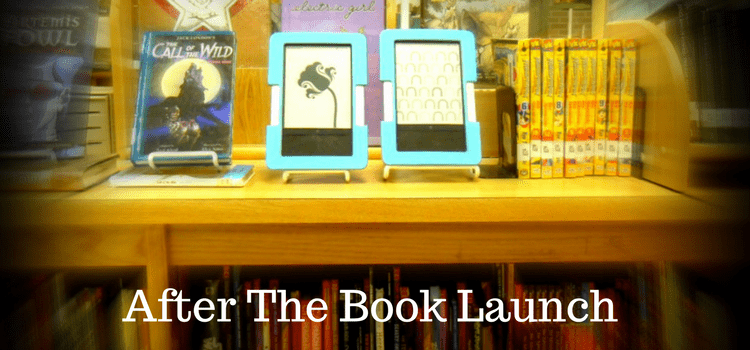
The launch of a new book, be it the first for an author or a most recent release, has always been the established gateway for traditional publishers to introduce a new work.
The launch of a book is like the birth of a baby: crucial and necessary.
There is, after all, no future for an unsuccessful birth.
For the author, like anything born into a lifecycle, it is the aftermath that really matters.
For those authors seeking career continuity and even enduring recognition, digital publishing has offered a widening arena of options for keeping a book from disappearing.
The Traditional Publishing Path
I started out as an author with traditional royalty contracts.
My books, The War of the Roses (Warner Books), Random Hearts (Macmillan), The Sunset Gang (Viking Press), Mourning Glory (Kensington), and Trans-Siberian Express (Putnam), among others, were represented by large publishers.
But traditional publishers could not offer me what I wanted for my work.
The old tried and true publishing path went something like this: The book is edited, a book cover is designed, and a date is set for the launch. Top reviewers are informed and sent copies.
An attempt is made to secure endorsements, and the book begins its journey, at first, as a hardback.
The book is cataloged well in advance.
Media outlets are contacted, and some respond depending on the book and the novelist’s previous work. Bookstores place orders, but most are speculative; the book may or may not be shelved.
Then the launch date arrives, and if the publisher senses “buzz,” an ad or two might be placed, and coop money invested.
Book signings and a book party may be arranged by the publisher, including the author’s friends or relatives. The book is now available for purchase.
But for most books, especially debut novels, if sales are low, the author’s future is dim. The book eventually fades from the public consciousness.
If the book hits a prestigious bestseller list, it has the advantage of being placed at the forefront of the public consciousness by means of various outlets, reminding readers of its presence and sparking purchases.
The amount of time on a bestseller list is directly proportional to sales.
Traditionally, a paperback would be launched sometime later, and by that point, the hardback is discounted and remaindered.
After that, unless the work finds its way on to the big or small screen as an adaptation, or to academia to be adopted into the curriculum, it fades into obscurity or simply disappears.
Traditionally published books are also subject to contractual terms, which eventually take a work out of print based on certain sales outcomes within a given period.
Going Digital
Before the advent of digital publishing, most books had no chance to continue being circulated in new and creative ways, even those that were briefly celebrated.
Memory is short, and notoriety and celebrity sputter quickly like the last gasp of a candle before it flames out.
Of course, those few who do achieve this brief notoriety consider the spotlight moment as a worthy payout for work well received and recognized as having contributed to the zeitgeist.
While reticence and modesty may inhibit vocalizing their conviction, authors believe that their work has a long tail, has relevance and consequence, and is worthy of survival.
From my perspective, it is the absolute truth that motivates artistic creation. But for authors who aspire to endurance, it is in the aftermath where the long-term grand prize lies.
Digital publishing defies traditional norms that dictate the average lifespan of a book, and authors are no longer bound by the limitations of a traditional book launch campaign.
In shelving methods used by legacy publishers, books would simply be removed from the shelf, never to be advertised again.
Buyers would have to search for titles in libraries or secondhand bookstores.
But when a reader searches for a recently released title with an online book retailer such as Amazon, iBooks, Nook, or Kobo, all of the author’s previous works are displayed alongside the search result on the interface.
Thus, an author’s complete repertoire can always remain available for purchase. An e-book will never go out of print.
The Book Promotion Front
Thanks also to digital media, authors now have the ability to promote their work via social networking, blogs, online reviews, and personal websites.
Authors today, far from having their backlist disappear into the ether, can play an active role in discoverability.
It also means that an author can re-launch any book from their backlist at will, utilizing all the networking, publicity, and advertising levers, paid or unpaid, available to the author.
Warren Adler. As a novelist and an e-book pioneer. I have long been driven by the issue of discoverability and survival of my books.
It has always been a heroic challenge, full of experimentation and beyond predictability, perhaps best characterized by William Shakespeare’s great quote from Macbeth.
“If you can look into the seeds of time/And say which grain will grow and which will not, speak, then, to me….”
The views expressed in this guest post are solely those of the author and may not reflect the views of Just Publishing Advice.
Related Reading: Social Media Book Promotion Is Past Its Prime For Authors
Share This Article
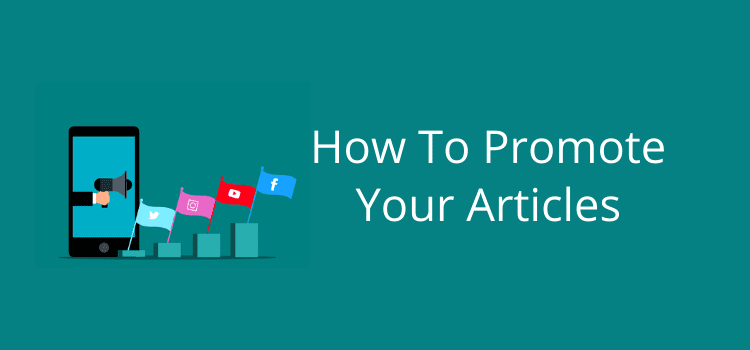
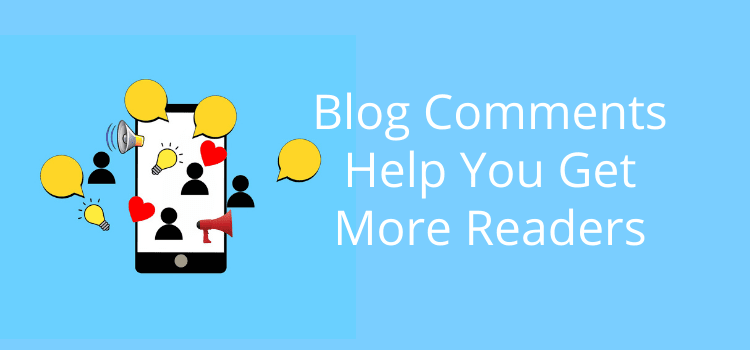
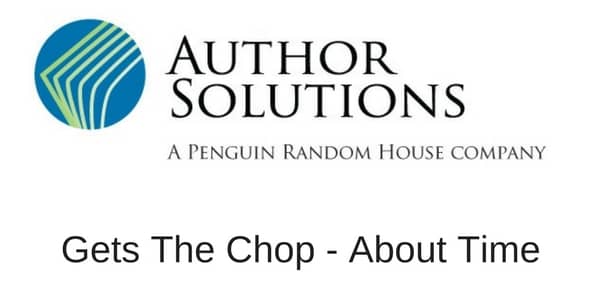
I always say pre-launch is important. Connect with community before you need them. I know for most clients it’s a question of “what if I take too long to write it” or “what if I change my mind”. Thanks for writing this!